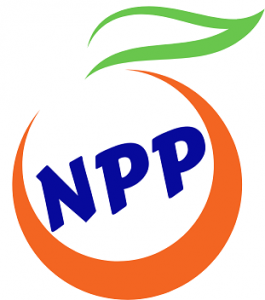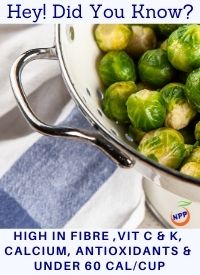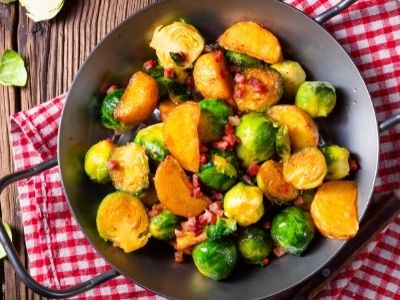Scroll down to listen to the audio!
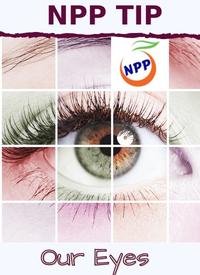 How many of us take our eyes and our eyesight for granted? This is usually the case, until we are faced with limited vision, or are diagnosed with an eye condition, like conjunctivitis, night blindness, dry eyes, blurred vision, cataracts, glaucoma, macular degeneration, or, most terrifying of all, blindness. Yet, the loss of our sight would impact our lives in countless ways.
How many of us take our eyes and our eyesight for granted? This is usually the case, until we are faced with limited vision, or are diagnosed with an eye condition, like conjunctivitis, night blindness, dry eyes, blurred vision, cataracts, glaucoma, macular degeneration, or, most terrifying of all, blindness. Yet, the loss of our sight would impact our lives in countless ways.
Our aging population understands that vision disorders can limit us in terms of our mobility, independence, social interactions, activities such as reading, writing, and watching TV, and even the simple pleasure of enjoying a magnificent sunset or a clear blue sky. If our jobs centre around using a computer, we may no longer be able to work, thereby losing our primary income source.
As I notice changes in my own vision, I wonder if some are due to negative effects caused by the many hours that I spend on my computer, tablet, and/or smart phone each day. I definitely have experienced an increase in eye fatigue and eye strain.
Regular eye exams by qualified practitioners are essential. For me, it is important to know if any issues have surfaced so that I can jump into prevention mode, before a doctor tells me “I am sorry to say that you have….”.
I recently had an extremely thorough eye examination at a wonderful ophthalmology clinic near my home. They had renovated and added the latest eye testing equipment. I learned that I could benefit from different eye glass prescriptions depending on my activities. I don’t require glasses most of the time but, nevertheless, I now own four sets of glasses. These are not the drug store reading glasses that many of us have throughout our homes. Each pair has an individual prescription and/or a specific purpose.
For decades, I have had glasses for distance, necessary for driving my car or watching TV. Years later, I added a pair for attending seminars, so that I could look up at the PowerPoint presentation on the large screen and, at the same time, take notes. With these, the glass only covers my eyes when I look up or straight ahead. As I look down, I can clearly see my notebook or computer. Out of necessity, last year, reading glasses were added to my repertoire. But the real magic occurred when I recently purchased my fourth pair of glasses. This prescription is designed for use with my laptop, desktop, or tablet, while sitting further away than a book or closer than the television. I immediately noticed that my eyes no longer feel tired or strained while being online.
In order to protect these precious “windows to our soul”, there are many things that we can do, naturally.
Avoiding sugar, salt, saturated fat, fried foods, rancid foods and other sources of free radicals can decrease our risk of eye disease. Aging and environmental exposures are the usual culprits causing free radical damage in the body which can result in cell damage and a variety of eye diseases. They are caused by breathing in, being in contact with, and ingesting substances like cigarette smoke, chemicals, pesticides, household cleaners, cosmetics, and radiation from the sun itself.
Antioxidants, which protect us from free radical damage, have been shown in studies to prevent, or at least delay, age related macular degeneration and cataracts. Recommended foods would include leafy greens, yams, carrots, broccoli, a variety of highly coloured vegetables, fresh fruits, in particular citrus fruits and dark coloured berries. Primary antioxidants are Vitamins A, C, E, and the mineral, selenium.
Orange coloured fruit and vegetables like carrots, sweet potatoes, and apricots are high in beta carotene which the body converts to Vitamin A and are important for the retina, the cornea, to enhance night vision and to prevent dry eyes. This conversion is more difficult with a sluggish thyroid so, in this case, Vitamin A supplementation could be very beneficial.
Vitamin C has been found to help strengthen the blood vessels in our eyes and may even lower our risk of cataracts. It is essential to help the body repair and grow new tissue. It is found in citrus fruits like oranges, tangerines, grapefruit, and lemons and, also, in peaches, tomatoes, strawberries, and bell peppers.
Vitamin E keeps our cells healthy. It has been shown to help prevent age related macular degeneration and some studies have found it helpful in lowering the risk of developing cataracts. It is found in avocados, almonds, sunflower seeds, leafy greens, and extra virgin olive oil.
Vitamin D has been studied and seen to protect against age related issues like cataracts, macular degeneration, and glaucoma. It helps to heal the cornea, in case of injury, and it can help increase tear production. Sources include cod liver oil, salmon, sardines, beef liver, and egg yolks.
Glutathione is found in the lens of the eye and plays an important role in keeping it healthy. Glutathione levels may be raised by increasing our intake of fresh fruits and vegetables, particularly asparagus, avocados, broccoli, carrots, cucumber, okra, and squash, preferably organic.
Omega 3 fatty acids are good for tear production and may reduce the risk of eye diseases later in life. Good sources are found in cold water fish like salmon, sardines, halibut, and trout.
Lutein and Zeaxanthin (pronounced Zee-uh-zan-thin) protect the retina from oxidative changes caused by ultraviolet light. They are found in eggs, leafy green vegetables, spinach, kale, peas, and broccoli.
And finally, getting at least 7-8 hours of sleep each night will help renew our eye health. While our eyes are tightly shut, we get improved moisture and a well-needed rest from the bright lights and radiation that assault us throughout the day. Drinking 8-10 glasses of water daily will help to reduce irritation caused by dry eyes. Washing our hands before touching our eyes and avoiding splashing tap water directly into our eyes can prevent severe eye infections. Warm compresses, using boiled water, can be very soothing and restorative.
If we take care of our eyes, our eyes will take care of us.
Have you heard of the 20-20-20 rule? Every 20 minutes, take a break and shift your eyes to focus on an object at least 20 feet away for at least 20 seconds!
Blinking keeps our eyes moist and helps prevent dry eyes. Staring at a tablet, computer, or phone, and even when reading a book, our blink rate drops significantly from 17-18 times per minute to 4 or 5 times per minute. We are drying out our eyes. Take breaks!
The importance of taking care of my eyes was clearly brought home to me recently, after receiving this email:
“Can You Enhance Your Blog Page?
Hello, I’ve been a reader of your website for around 4 months and I would like first of all to say that I really enjoy it. I have recently started having some problems with my eyes which affects my reading ability. Therefore, I have a favour to ask. Is it possible for you to add podcast audio versions of your articles on your website? It would be very useful for people like me or others who like to listen to your content.” – Patricia H.
Thank you Patricia for that brilliant idea. This was something I never thought about, which could be beneficial for many. So, I have begun to add an audio version to each of the Blogs on our NPP Tip page.
Our eyes are a reflection of what we are feeling and often communicate to others what we are thinking; our story. But, when we meditate, we close our eyes and turn our gaze inwards. Each time, we learn a little more about who we truly are; the true essence of our beings.
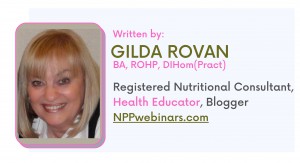
*Audio for those in need or who prefer to listen to our blogs:
